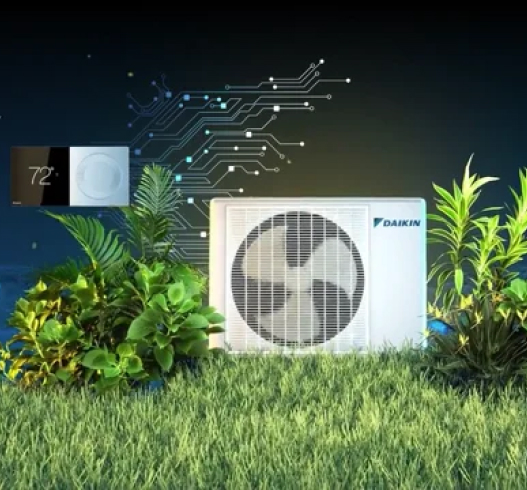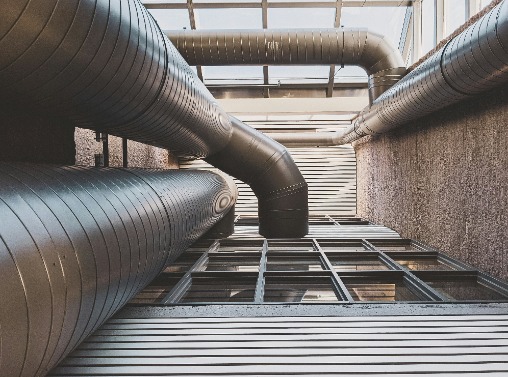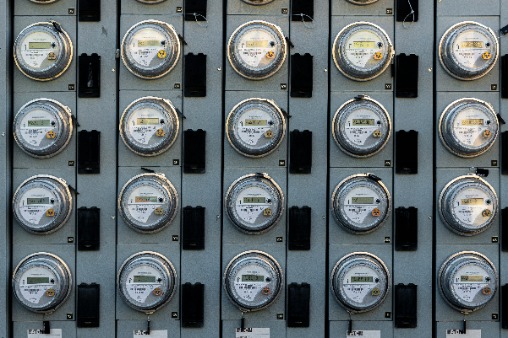Eight Ways to Save Money on Air Conditioning Your Home

As outdoor temperatures rise, many homeowners worry about high energy costs - and they have every reason to be concerned The U.S. Energy Information Administration (EIA) says the average U.S. residential electricity price for November 2022 was approximately 15.14 cents/kWh, an increase of about 10.9% from the 13.65 cents/kWh in November 2021.1
Yet, with utility costs rising, there are easy ways and improved technology to help combat soaring energy bills. Consider the following to help keep your energy costs under control.
- Set the Temperature for Savings
According to ENERGY STAR®, a program of the U.S. Environmental Protection Agency and the U.S. Department of Energy, owners of programmable thermostats should consider increasing the air conditioning temperature setting by 7°F when homes are unoccupied and by 4°F when occupants are asleep.2 For every degree you lower your thermostat, you'll save more on your electric bill.
- High-Efficiency Air Conditioning
One of the best ways to save money on your cooing bills is by investing in a high-efficiency air conditioner or heat pump designed with two-stage, variable speed, or inverter technology, which adjusts to your cooling demand. Your central air conditioning doesn’t have to run at a single speed, meaning 100% in every circumstance, but can adjust to necessary load requirements in an energy-efficient manner.
For example, a high-efficiency heat pump or air conditioner system will not likely have to run at 100% capacity when your thermostat is simply trying to maintain a specific temperature. That means that it won’t need to use the full amount of energy. A low demand from the thermostat can result in speed reductions at the compressor and indoor unit circulating fan.
Investing in a high-efficiency coolong system (air conditioner or heat pump) with energy-saving technology may help lower your bills.
- Consider an Air Conditioner or Heat Pump with Inverter Technology
An inverter is energy-saving technology that eliminates wasted operation in air conditioners and heat pumps by efficiently controlling the motor speed.
A typical single-stage indoor comfort system turns on to maintain a set temperature. This ON/OFF action draws a lot of electricity. In an air conditioner or heat pump with inverter technology, the temperature is adjusted by slight adjustments in the motor speed without needing to turn the motor on and off. The result is less power usage and improved energy savings over a single or two-stage cooling system.
While you may not think about heating costs in the summer, an electric heat pump with adaptive inverter technology may be a great energy saver all year long. A heat pump acts like an air conditioner in the summer but also heats your space in the winter.
If electricity is the only choice, heat pumps are preferable in most climates, as they easily cut electricity use by 50% when compared with electric resistance heating.3 However, converting from a fossil fuel heating source to an electric heat pump might also provide sustainable, long lasting energy savings. According to EIA, energy costs for natural gas in some areas is soaring. At a national level, residential heating costs from natural gas rose nearly 19% in November 2022 to $15.63 per 1,000cf, up from $13.15 per 1,000cf in November 2021.4
- Install a Programmable, Smart Thermostat
Smart, connected, programmable thermostats are more common than ever before, and often give you the power to control your home’s indoor temperature from your cell phone. This 24-7 connectivity helps you to stay on top of your home’s energy use. Some smart thermostats offer geolocation, a feature that can automatically raise your home’s set cooling temperature when you leave the house or lower it as you come within a certain distance of your front door. This type of customized control helps minimizes unnecessary home cooling.
- The SEER and SEER2 Factor
The higher the SEER (Seasonal Energy Efficiency Ration), the less energy an air conditioning unit is designed to utilize during operation. It measures the annual energy consumption and efficiency of the unit’s cooling ability in typical day-to-day use.
Today, air conditioners have SEER ratings that start at 13 and go higher than 25. Beginning in 2023, the Department of Energy requires manufacturers to align with the new SEER2 metric. Under this adjusted Seasonal Energy Efficiency Ratio, the minimum U.S. SEER2 for central air conditioners starts at 14.3 SEER2 in the Southeast and Southwest regions and 13.4 SEER2 in the North. Despite the number, it's important to remember when comparing SEER2 numbers that the higher the number, the more efficient the system.
- AC Maintenance
Just like your car, maintenance keeps your AC running at peak performance. Over time, dust and debris on your system may impact its efficiency. It is highly recommended that you use a licensed technician for a cooling system maintenance check-up in the spring or prior to turning on your system. Many AC companies offer an annual maintenance program that may identify a minor issue before it turns into an expensive AC problem.
We always recommend using a licensed HVAC technician, so be sure to use a dealer locator with licensed dealers.
- More Ways to Save Money on Your Energy Bills
Your air conditioner does contribute to a good portion of your energy bill. However, there are other factors that, when addressed, can help lower your monthly bill.
- Insulation: Make sure your home is well insulated with an acceptable R-value. (NOTE: R-value measures how insulation prevents heat from flowing in or out of a home)
- Windows: Install energy-efficient windows, solar screens, or utilize room darkening curtains
- Supplemental solar energy
- Inspect weather stripping around door and window casings
- Energy Calculator and Savings Assessment Tool
Are you curious to learn what your estimated savings could be if you invest in a new, high-efficiency air conditioner? Online tools like the Daikin Efficiency Advisor may help identify potential energy savings. The tool utilizes home and lifestyle details to create an estimated savings assessment. Understanding this information may help you determine if it is the right time to replace your current cooling system with one designed to utilize the least amount of energy possible.
1. U.S. Energy Information Association. Electric Power Monthly. Feb 2023.
2. Energy Star. Programmable Thermostats. n.d. August 26, 2022.
3. Energy Star. Electric Resistance Heating. n.d. Feb 20, 2022.
4. U.S. Energy Information Association. U.S Price of Natural Gas Delivered to Residential Customers. 23 January 2023.
In this article
Connect on Social Media
 Follow on Facebook
Follow on Facebook
 Follow on YouTube
Follow on YouTube
 Follow on Instagram
Follow on Instagram
 Follow on X
Follow on X
 Follow on TikTok
Follow on TikTok
 Follow on Pinterest
Follow on Pinterest

Looking for help now?
Enter your zip code to search for Daikin Contractors in your area.
Learn More
Learning Center Content
Stay informed about home comfort technology, when to upgrade, energy efficiency, and reducing your energy bills.





























